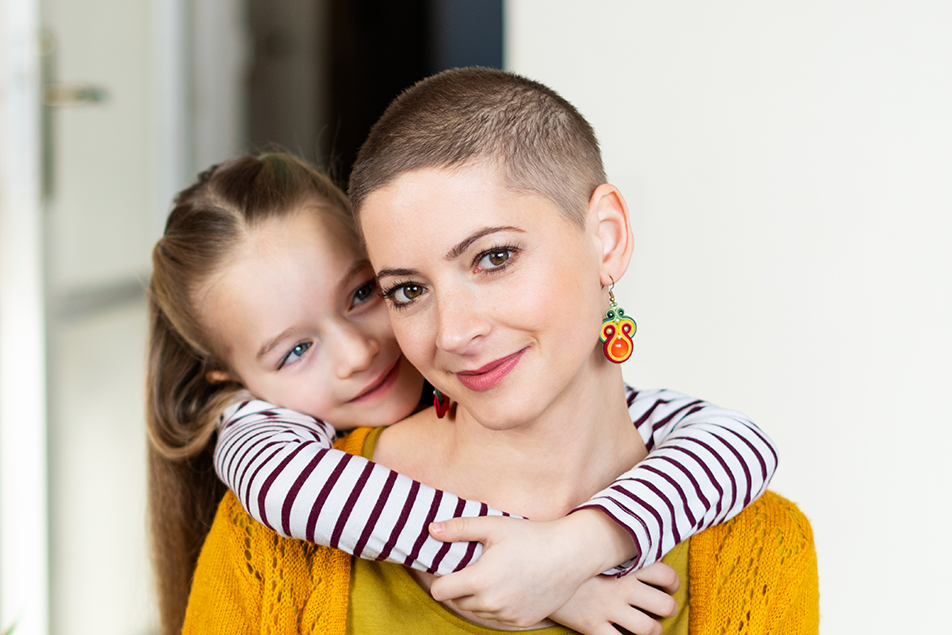
This post was written by Breck Hunnicutt, NP, Parkview Packnett Family Cancer Institute Survivorship Clinic.
Being a “cancer survivor” is one of the most gratifying labels a patient may have the pleasure of experiencing. What was just experienced is unlike any other and is all-encompassing. During treatment, perseverance was the name of the game. It was all hands on deck. Now treatment is over and it’s time to take a deep breath and celebrate!
This is also the time the realization sets in that “normal” may look much different. How could it not look different? Just because treatment is over, that doesn’t mean that the journey is. Every cancer patient has, at one time, at least for a fleeting moment, faced their own mortality. They have experienced challenges physically, emotionally, financially and even spiritually throughout the treatment phase of cancer. Now is the time the focus switches to establishing a new normal.
What should a patient expect after cancer treatment?
Survivors may experience lingering weakness, fatigue and pain. It is common to experience a range of emotions, from fear, anxiety, depression and even guilt for surviving when others did not.
Many cancer survivors experience a change in appearance, thought processing and functional status. This may come as a surprise to the survivor and the supportive family and friends. At times, the survivor feels there is something wrong with them and feel like they are letting everyone else down. It’s entirely normal to experience a range of emotions through this initial phase.
Focus on the “new normal”
The phase immediately following the completion of treatment can be unsettling, but it can also be viewed as an opportunity. A survivor’s transition into this new normal varies, as coping mechanisms vary. All people and situations are unique. There are no right or wrong answers or timeframes. Some settle into the new normal quite easily and quickly, while others mourn the more care-free, pre-cancer life for an extended period of time. This phase might last months or years.
The new normal is unique for each individual and can be an exceptional growth experience. Many survivors develop a different sense of priorities, a thirst for closer relationships and an eagerness to participate in a healthier lifestyle. The most common initial challenge of this phase is uncertainty; uncertainty of the cancer coming back, how to reduce the risk of other cancers developing, and an overall plan moving forward. A loss of control is a common emotion through cancer treatment. Research has shown that people feel more settled if they have a sense of control. Finding a new normal can increase that sense of control and well-being.
Tips for the first phase of your post-cancer journey
Try these strategies for navigating the days, weeks and months following the conclusion of your cancer treatment.
- Write your feelings down in a notebook or journal. This helps you control and let go of fears.
- Share your feelings with family and friends.
- Obtain education on the surveillance plan.
- Be aware that some friends and family may expect you to be 100 percent back to normal.
- Avoid pressures and unrealistic expectations from others.
- Long-term side effects from cancer treatment can be managed. Talk to your care team about strategies.
- Evaluate and create your own expectations.
- Develop your wellness goals.
- Do things at your own pace.
- Focus on each day and expect both good and bad days.
- Define the most cherished entity of your life.
- Ask yourself if you are focusing on your most cherished entity.
- Do not hesitate to ask for help from others (family, friends and healthcare providers).
- Discuss your goals with others (family, friends and healthcare providers).
- Consider meditation, deep breathing, visualization or yoga for relaxation.
- Read other survivors’ stories.
- Obtain education and support for risk reduction strategies.
- Consider opportunities to improve your wellness.
- Share your feelings of sadness (family, friends, and healthcare providers).
- Increase your exercise by walking outside and increasing the duration slowly.
- Do not feel pressured in making life changes.
- Remember what you are going through is normal.
For more information on the Survivorship Clinic, call 833-724-8326.



